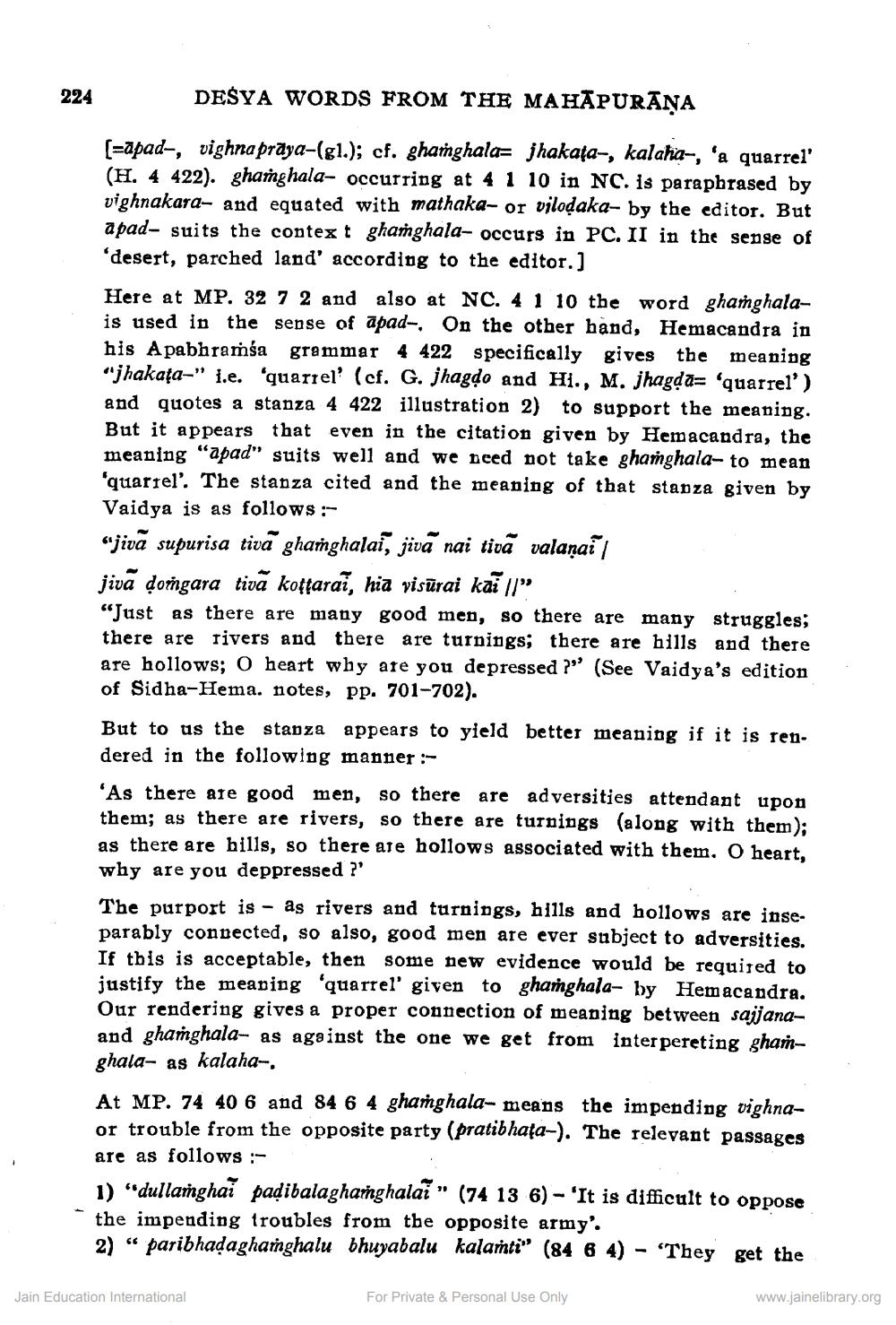________________
224
DESYA WORDS FROM THE MAHĀPURĀŅA
[=apad-, vighnapraya-(gl.); cf. ghamghala jhakata-, kalaha-, 'a quarrel' (H. 4 422). ghamghala- occurring at 4 1 10 in NC. is paraphrased by vighnakara- and equated with mathaka- or viloḍaka- by the editor. But apad- suits the context ghamghala- occurs in PC. II in the sense of 'desert, parched land' according to the editor.]
Here at MP. 32 7 2 and also at NC. 4 1 10 the word ghamghalais used in the sense of apad-. On the other hand, Hemacandra in his Apabhramsa grammar 4 422 specifically gives the meaning "jhakata-" i.e. 'quarrel' (cf. G. jhagdo and Hi., M. jhagdḍa= 'quarrel') and quotes a stanza 4 422 illustration 2) to support the meaning. But it appears that even in the citation given by Hemacandra, the meaning "apad" suits well and we need not take ghamghala- to mean 'quarrel'. The stanza cited and the meaning of that stanza given by Vaidya is as follows:
"jiva supurisa tiva ghamghalai, jiva nai tiva valanai |
jiva domngara tiva kottarai, hia visūrai kai ||”
"Just as there are many good men, so there are many struggles; there are rivers and there are turnings; there are hills and there are hollows; O heart why are you depressed ?" (See Vaidya's edition of Sidha-Hema. notes, pp. 701-702).
But to us the stanza appears to yield better meaning if it is rendered in the following manner :
'As there are good men, so there are adversities attendant upon them; as there are rivers, so there are turnings (along with them); as there are hills, so there are hollows associated with them. O heart, why are you deppressed ?'
The purport is as rivers and turnings, hills and hollows are inseparably connected, so also, good men are ever subject to adversities. If this is acceptable, then some new evidence would be required to justify the meaning 'quarrel' given to ghamghala- by Hemacandra. Our rendering gives a proper connection of meaning between sajjanaand ghamghala- as against the one we get from interpereting ghamghala- as kalaha-.
At MP. 74 40 6 and 84 6 4 ghamghala- means the impending vighnaor trouble from the opposite party (pratibhata-). The relevant passages are as follows:
1) "dullamghai paḍibalaghaṁghalai" (74 13 6) 'It is difficult to oppose the impending troubles from the opposite army'.
2) "paribhaḍaghamghalu bhuyabalu kalamti" (84 6 4)
"They get the
Jain Education International
For Private & Personal Use Only
-
www.jainelibrary.org




